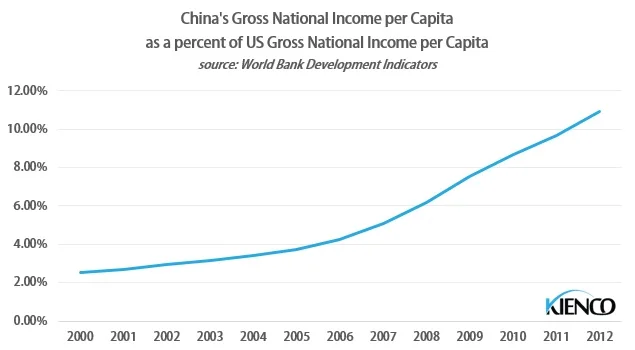A recent research report looks into crowdsourcing's potential (both utopian and dystopian) for influencing the future of work:
“Paid crowd work offers remarkable opportunities for
improving productivity, social mobility, and the global
economy by engaging a geographically distributed
workforce to complete complex tasks on demand and at
scale. But it is also possible that crowd work will fail to
achieve its potential, focusing on assembly-line piecework. ”
Crowdsourcing may have profound impacts on the future of work, but it is really just another (tech-enabled) form of atomising the supply chain. We've been atomising work for thousands of years, and Adam Smith's The Wealth of Nations (1776) that influenced much of modern Economic theory made the case that the division of labour and economic progress are inextricably linked. The difference with crowdsourcing is that the economic and geographic links between producer and beneficiary are less defined.
Siri avoids the question
A modern example of the atomisation of work is Apple. When you ask Siri where she's made, she tells you where she was designed. I suspect she's not avoiding the question - an accurate answer is almost impossible to provide, as Apple has an incredibly complex supply chain. Siri (or at least the devices that Siri resides within) are made and assembled in hundreds of locations around the world. As part of Apple's supplier responsibility, they publish a list of their top suppliers. Although the design is indeed done in California, here's where parts of Apple's devices are actually made and assembled:
Apple is not alone in oursourcing parts of manufacturing and sourcing, but provides a good example of the complexity of global supply chains. Atomising and outsourcing work is no longer for only the biggest corporations - or even only for corporations. Tim Ferris' 4 Hour Work Week, first published in 2007, provided a how-to guide to atomising and outsourcing your own work and life. Since then we've seen:
- people outsource their own jobs to China so they can watch cat videos; **
- A consumer goods company where the employees don't invent or manufacture anything get $175.3 Million in venture funding; and
- AirBNB and Uber attempting to disrupt the Hotel and Taxi industries respectively.
Technology enables these approaches and makes them more accessible, but the ideas are not themselves new. Fundamentally, crowdsourcing and atomisation are about specialisation and productivity. The big winners, relatively speaking, in this atomisation have been, and will continue to be, workers in developing nations*.
We can see the countries who have benefited most by economic development over the past 10 years by looking at the rise in Gross National Income (of course, there is far more to this picture than atomisation and crowdsourcing).
What is particularly interesting is the relative rise of Asia and Africa. Of 205 countries for whom the World Bank has tracked GNI in both 2002 and 2012, the standout "winner" is Chad with a GNI increase of 1286%. Equatorial Guinea, Azerbaijan, Turkmenistan, Nigeria, Angola, Kazakhstan, Timor-Leste, Russian Federation, and Mongolia make up the top 10. China's GNI has grown 420% (#11). Developing nations in East Asia and the Pacific have had GNI increases of 367%.
Australia's GNI has tripled (199% growth), putting it in the top 60 of the list of 200+ countries. New Zealand is at 153% Canada 117%, UK 45%, USA 40%. Only one Country, the Bahamas, has had GNI go backwards from 2002 to 2012, with a drop of 3%. As you can see from the map below and these statistics, it's Asia and Africa that are rising - fast - and have a long way to go.
With a huge growth in GNI in China and a very subdued growth in the United States, we get this very interesting picture - in 2000, China's GNI as a proportion of USA GNI was 2.55%. As of 2012, it was 10.93%, and rising. Outsourcing to China today is far less profitable than it was a decade ago, and we're starting to see examples of insourcing back to the USA, a counter-trend which 3D Printing will assist.
Regardless of the location of these jobs and the mechanism for outsourcing them, there's no doubt that atomisation and specialisation will continue, and that it's no longer just for physical labour and manufacturing, but for knowledge work too. A profound question that is raised by this is: how does work change when jobs are broken apart and farmed out around the world, and where we are disconnected from the results of our labour? Is economic development being driven by the atomisation of work, and is it worth the cost? I suspect if you've seen Gross National Income rise by 1186% in a decade, the answer is yes.
* Like any advancement, there are winners and there are losers, however I want to be clear that division of labour, economically, benefits everyone in aggregate, and there are countless historic examples of where protectionist policies have been counter-productive.
** This sounds ridiculous, but you know watching cat videos all day would be fun.



